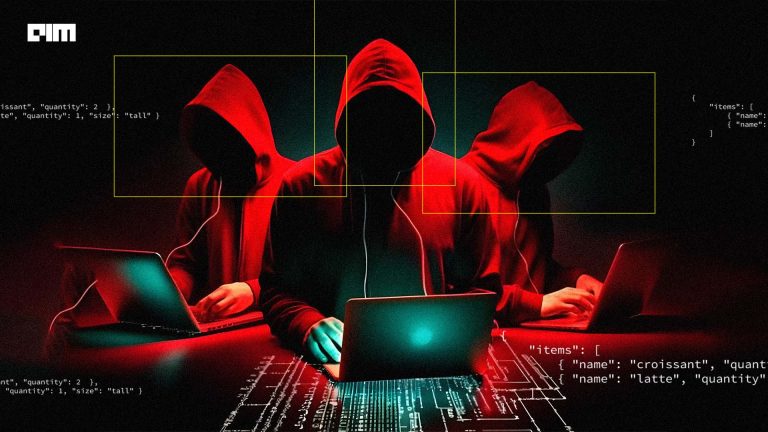The world of cybersecurity is always shifting with novel new threats, and zero-day vulnerabilities are bubbling up each passing day. Data breaches cost most companies $ 3.92 million on average, as per IBM-Ponemon study. The current skills crunch has terrible implications for companies in India struggling to find talent in the context of preventing costly data breaches.
The rising incidents of cyber attacks, coupled with data protection and privacy laws globally are estimated to lead to a $35 billion revenue opportunity and job opportunities for millions of Indian professionals by the years 2025, according to NASSCOM. One of the factors cited by the industry body was that by 2025, India’s IT sector alone would reach about USD 350 billion, and 10% of this would include cybersecurity.
How The Cybersecurity Job Space Is Evolving
Across the world, there are thousands of enterprises in a hunt to hire cybersecurity professionals simultaneously, which has resulted in not just steadily rising salaries but also a significant crunch in the available skills and talent in the market. While it is critical to hire skilled cybersecurity professionals, what if many candidates don’t have the expertise in the first place?
This is the precise reason why most organisations have such difficulty in meeting that skills demands in the cybersecurity space of India. According to Cybersecurity Ventures, there will be 3.5 million unfilled cybersecurity jobs by 2021. While security engineers with college degrees are already rare in the skills market, a lack of formal cybersecurity degrees is not impacting the talent pool.
There are ethical hackers across the globe who may not be hired into traditional full-time roles as they may not have the conventional engineering degrees despite possessing better hands-on skills than a lot of IT security managers. The reason is that the job role of an ethical hacker consistently requires him/her to get involved in hackathons and bounty programs that hunt for security vulnerabilities.
How Can You Hone Skills For Advanced Threats?
Do traditional college degrees enable adequate cybersecurity courses for the next generation of security professionals? What we see is that only a tiny fraction of colleges in America provide cybersecurity-focused courses for college students. If that’s the case with the US- a country with top availability of talent and skills in cybersecurity, the situation is estimated to be worse here in India.
Also, how do you train professionals and students on new threats? This means that the technical nature and the solutions to prevent such advanced attacks are not known to many companies until the attack finally happens.
According to experts, the solution lies in cybersecurity education which caters to developing a hands-on approach to preventing cyber-attacks and identifying vulnerabilities. Specialised courses can undoubtedly tackle the issue given the syllabus is continuously optimised.
New education tools are cropping up outside of the traditional classroom, offering free coursework designed by ethical hackers for the growing cybersecurity talent and skills pool. One such course is the Great Learning’s Cybersecurity program – a six-month online program seeks to deliver industry-relevant skills.
The course is designed by the Stanford Advanced Computer Security Program and delivered by Great Learning for a hands-on learning approach. The Stanford faculty have crafted the course in a way that students learn a wide range of skills, including security design, cryptography, penetration testing, Network security emerging threats and defence systems, and many more practical skills.
About The Programme
The 6-month-long programme is designed to get the learners employed by providing them with a broad understanding of the basic and advanced concepts of cybersecurity. The training will enable learners to implement cybersecurity techniques and cover topics like:
- Foundations of Information Security
- Writing secure code
- Exploiting web applications
- Using cryptography correctly
- Managing network security
- Staying on top of emerging threats and defences
The Stanford Advanced Computer Security class consists of working professionals from noted organisations and backgrounds maintaining an impressive diversity across work experience, roles, and industries which also help students in India gain advanced cybersecurity skills needed to launch their career in this in-demand field.
The Faculty
The faculty for this program are experts and pioneers in the field of cybersecurity.
Dan Boneh is a professor in applied cryptography and computer security at Stanford University. Boney is a PhD in Computer Science from Princeton University and is one of the principal contributors to the development of pairing-based cryptography. In 2018, Boneh became co-director of the newly founded Center for Blockchain Research at Stanford.
John Clifford Mitchell is professor of computer science and an electrical engineer at Stanford University. He has published in the area of programming language theory and computer security.
Neil Daswani is a co-director of the Stanford Advanced Security Certification Program and an expert in web application security. He is the lead author of the book “Foundations of Security: What Every Programmer Needs To Know.
Other advantages for the learners as part of the program include:
- Mentorship from senior cybersecurity practitioners (CISOs) who bring the industry perspective
- Get your cybersecurity skills recognised with a certificate from the Stanford Center for Professional Development
- Participate in projects that foster hands-on learning
Career Outcomes
Cybersecurity is a thriving field right now, and knowledge of this sector can open up numerous areas, especially after taking a comprehensive course like the Stanford Program. After the program, one can become a Network Security Engineer, which is one of the most in-demand roles; or Penetration Tester, which is one of the highest-paid roles. With this program, the student learns multiple areas of cybersecurity and can perform the roles and responsibilities of a Consultant or an Architect with relevant experience.
Depending on where they stand, this program can launch the learners to the next orbit. If one already has a background in information security, this program can help them gain broader skills, and propel them to a Team Leader, Technical Architect or even a cybersecurity Manager role.
Programme At A Glance
Duration: 6 months
Interactive Sessions: 18 to 20
Course Type: Online lectures with dedicated mentorship
Fees: Early Bird Fee – ₹1,74,650 (USD 2,495), Regular Fee – ₹2,13,150 (USD
3,045)
Financial Aid: Available
Certification: Stanford Center for Professional Development
Pre-requisites:
– Bachelor’s Degree
– At least 3 years of professional experience recommended
– Familiarity with programming, computer systems
– Comfort with the IT and Technology Industry
Note: The program can be done if the pre-requisites aren’t strictly met as far
as an individual is keen to learn
So, go ahead and apply for the upcoming batch of Stanford Advanced Computer
Security Program. Applications close 25th March; limited seats are available.




















































































